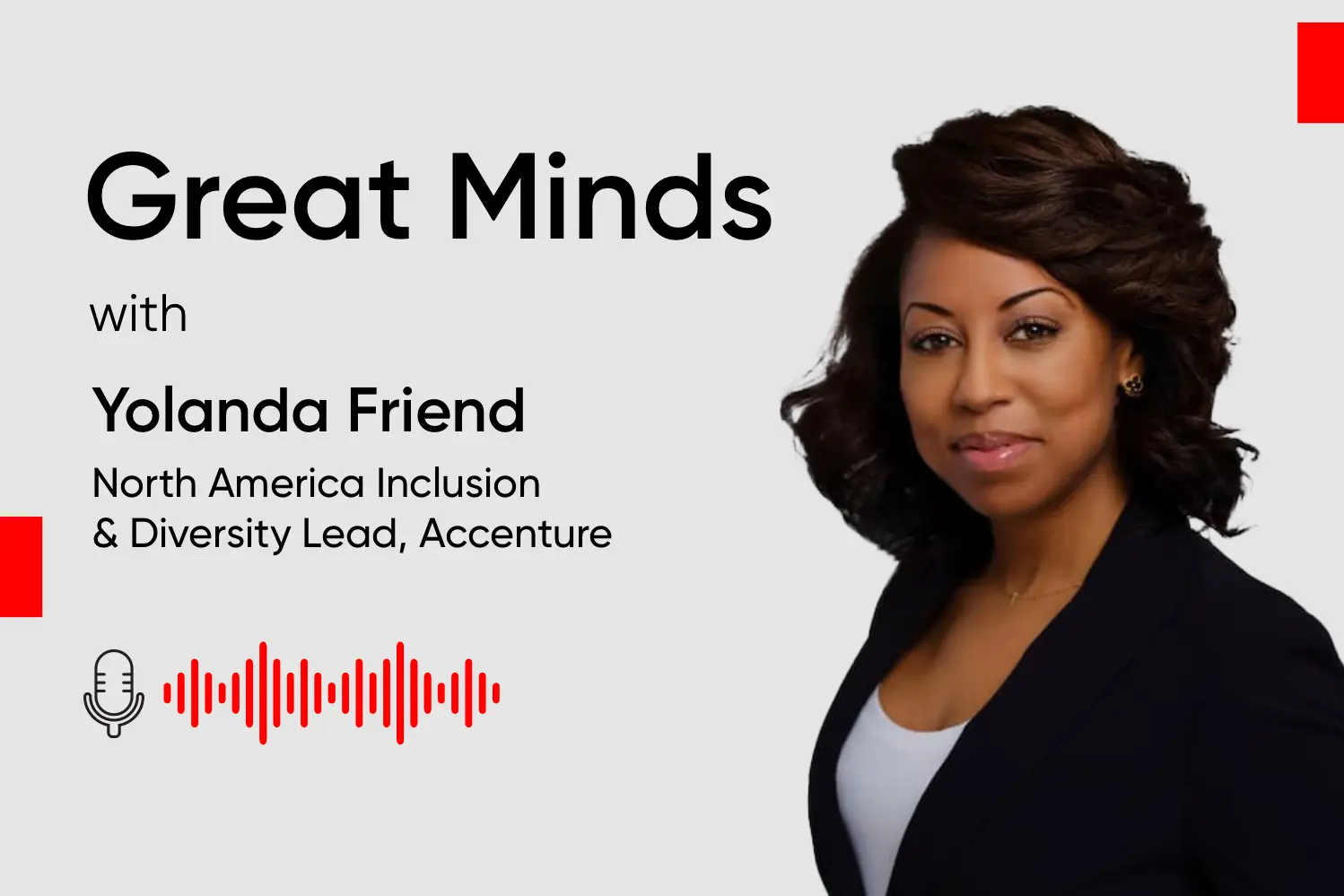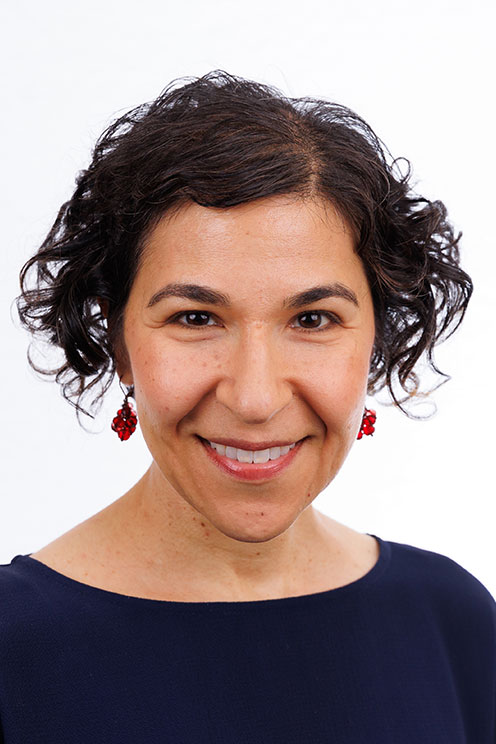Podcast Highlights
- Beyond Numbers: Truly understanding representation, inclusion, and belonging requires more than just tracking metrics.
- Mentorship vs. Sponsorship: Both are crucial; mentors guide, while sponsors advocate for you in influential spaces.
- Practical Inclusivity: Simple actions like recognizing ideas and checking in with colleagues can significantly enhance workplace inclusion.
“We know how important it is to look beyond the numbers. To really understand what representation, what inclusion, what belonging really means to our people. And that's where active listening is really important to understand the employee experience. Diversity without the inclusion part won't cut it.”
Yolanda Friend, inclusion and diversity lead for Accenture North America, shares powerful insights and actionable steps to create a more inclusive culture on this episode of the Better podcast.
From the importance of mentors and sponsors to the everyday micro-experiences that make a difference, Yolanda's practical tips will inspire you to champion belonging and unlock your employees’ full potential at work.
Learn why having a diverse workforce isn’t just the right thing to do, but also good for business. Plus, get a sneak peek into Yolanda's mentor's new book, “Unwavering,” filled with invaluable career and life lessons
On why having an inclusive workplace at Accenture is good for business:
Our goal at Accenture is to be the most inclusive and diverse company in the world. We want people to love working here. We want them to feel like it's the best place to achieve their personal and professional aspirations. To make that a reality, we have to treat efforts around inclusion and diversity just like every other business priority.
We have to be able to attract, retain, and inspire people with different backgrounds, perspectives, and lived experiences. And we have to reflect the communities where we live and work.
To achieve this diversity, we set goals. We share them publicly. We collect the data and we measure our progress. We know that this transparency of information builds trust with people.
And we also know how important it is to look beyond the numbers. To really understand what representation, inclusion, and belonging really mean to our people. And that's why active listening is really important to understand the employee experience. Diversity without inclusion won't cut it.
On tangible steps all companies can take to create more inclusive cultures:
There are important formal and informal ways of doing this.
Formal programs — for example, belonging to an ERG, participating in a mentoring or sponsorship program — those are structured and really great because they're there to equip, educate, and elicit inclusive behaviors in a company.
Equally as important are more informal things that you can do, such as:
- Stepping in when someone's cut off in a meeting.
- Making sure people are getting credit for their ideas.
- Checking on people. Really taking that time, just take 10 minutes and send them a ping, get on the phone, check in and see how people are doing. It really does make a difference when we show up for people like that.
On the difference between mentors and sponsor, and the benefits of each:
Mentors are there to listen to you. Sponsors are there to talk about you in rooms, places, spaces where you aren't — or at least you aren't yet.
When you think about sponsorship, you definitely want to think about a person who is in a position of power, who has influence in the organization, and who is willing to invest the time and ultimately spend their political capital advocating for you and being your voice and champion when you aren't there to be your own voice and champion.
The evaluation of each is a little bit different, and it's important to have both in your life.
I've had the opportunity to have many mentors throughout my career, both internal to Accenture and outside of Accenture. I think that's also important because you can fall into a vortex of your own company and your own situation. Taking off the blinders, and looking and listening to other perspectives is always refreshing and helpful.
I've had the blessing of having fantastic coaches, mentors, and sponsors in my career. Interestingly, I had all of that wrapped up in one person. Her name is Nellie Borrero and she has a book coming out in March of 2024 that's called “Unwavering.”
She's done an amazing job of culminating all of the coaching, life, and career lessons that she’s shared and imparted with me over the past few years into this book.
FAQs
- How can my company implement the practical tips mentioned to foster a more inclusive workplace?
People may wonder how to apply the everyday actions and formal programs Yolanda mentions, such as ERGs and mentoring, in their own organizational context. - What is the difference between a mentor and a sponsor, and how do I find one in my company?
Listerners and Readers might seek clarification on identifying and engaging mentors and sponsors within their workplace to support their career growth. - Why is active listening emphasized as a key component of understanding employee experiences?
Listerners and Readers might want to know more about the role of active listening in creating an inclusive culture and how it can be effectively practiced in their organization.
Tools & Resources
- Company Culture: “Cultivating a purpose-driven company culture that aligns values with actions to drive sustainable success.”
- Employee Engagement:“Empowering employees through meaningful engagement strategies that enhance productivity and foster long-term loyalty.”
- Leadership & Development:“Building visionary leaders through continuous development, driving innovation, and shaping the future of our organization.”
- Diversity and Inclusion:“Embedding diversity and inclusion into the core of our business strategy to unlock the full potential of every individual.”
Feedback
We greatly appreciate the experiences and insights of our readers. If you’ve implemented any of the inclusive strategies discussed or have valuable insights from your journey towards creating a more inclusive workplace, we invite you to share your stories. Your feedback not only enhances this resource but also helps others in fostering a culture of belonging and inclusion. Please share your thoughts in the comments section below or reach out to us directly. Your experiences can inspire and guide others striving to make a difference in their organizations.
Get Certified 
Think your company is a Great Workplace? Get certified today to make it onto our best workplaces lists.
Original Podcast Published by Great Place To Work® USA : Click here to visit the page.







